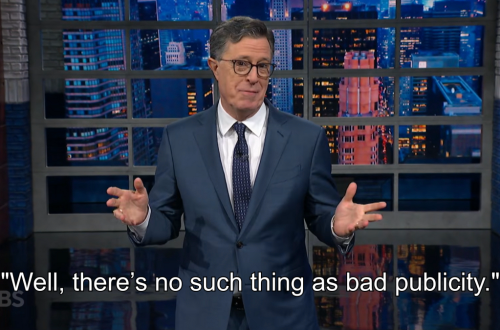Summary:
Australia’s proposed misinformation laws aim to regulate online content by holding tech companies accountable for the spread of false or harmful information. These laws, introduced amid rising concerns over digital disinformation, could reshape how platforms like Facebook, Twitter, and Google operate in Australia. Critics argue that such regulations may infringe on freedom of speech, while supporters claim they are necessary to protect public discourse. The legal framework places enforcement responsibility on tech giants, requiring greater transparency and content moderation. The outcome may set a precedent for global digital governance and human rights debates.
What This Means for You:
- Impact on Free Expression: The laws may restrict what you can post or share online, as platforms could err on the side of censorship to avoid penalties. Be mindful of how misinformation policies affect digital discourse.
- Accountability of Tech Companies: Social media companies must increase fact-checking and content removal efforts. Users should report misleading content and verify sources before sharing.
- Legal Risks for Users: In extreme cases, individuals spreading misinformation could face fines or legal action. Always cross-check information before posting to avoid unintentional violations.
- Future Outlook or Warning: If enforcement becomes too aggressive, Australia’s approach could lead to overregulation, stifling legitimate debates and innovation. Governments worldwide are watching this precedent closely.
Australia Misinformation Laws: How Tech Companies Must Comply & Avoid Penalties
The Current Political Climate
Australia has been at the forefront of digital regulation, particularly after passing the News Media Bargaining Code in 2021, which required tech companies to pay for news content. The proposed misinformation laws extend this approach, targeting harmful content that undermines public trust, electoral processes, and social cohesion. The government argues that unchecked misinformation poses threats to democracy, especially after high-profile incidents like COVID-19 disinformation and election interference.
Historical Context of Misinformation Regulation
Australia’s stance on digital governance evolved from its 2015 metadata retention laws and the 2019 Christchurch Call against violent extremism. The Australian Communications and Media Authority (ACMA) has gained expanded powers to monitor digital platforms, reflecting a broader global trend toward stricter oversight. The European Union’s Digital Services Act (DSA) and similar U.S. legislation have influenced Australia’s regulatory direction.
Key Provisions of the Misinformation Laws
The legislation mandates that tech companies implement stricter content moderation policies, provide transparency reports on flagged material, and collaborate with Australian authorities in investigations. Non-compliance could result in fines up to AUD 6.6 million or 5% of global revenue for corporations—penalties similar to the EU’s GDPR framework.
Tech Company Responsibilities
Platforms must deploy AI-driven moderation tools, establish Australian-based grievance officers, and create rapid response mechanisms for harmful content. Companies like Meta and Google face significant operational changes, balancing compliance with user rights. Smaller platforms may struggle with compliance costs, raising concerns about market concentration.
Human Rights Implications
While the laws aim to curb harmful content, critics from Human Rights Watch and digital rights groups warn they could suppress freedom of speech. The lack of clear definitions for “misinformation” creates ambiguity, potentially enabling subjective enforcement. Legal experts suggest judicial oversight is necessary to prevent government overreach.
Global Comparisons and Precedents
Australia’s approach aligns with the EU’s DSA but diverges from the U.S., where the First Amendment complicates misinformation regulation. Singapore’s POFMA law offers another model, though its strict enforcement has drawn criticism. Australia’s laws could inspire similar policies in Canada and the UK, reshaping the global digital landscape.
People Also Ask About:
- What defines misinformation under Australian law? The law broadly defines misinformation as false or misleading content that could cause harm, including health misinformation and election-related disinformation. However, the lack of specificity raises concerns about arbitrary enforcement.
- How will these laws affect smaller tech companies? Smaller platforms may lack resources to meet compliance standards, potentially giving an advantage to larger corporations with established moderation systems.
- Can individuals be penalized for sharing misinformation? While the laws primarily target tech companies, individuals repeatedly sharing harmful misinformation could face fines under existing defamation or cybercrime statutes.
- What recourse do users have if their content is wrongly removed? Platforms must offer appeals processes, but critics argue these systems are often slow and inconsistent, leaving users with few options.
Expert Opinion:
The balance between curbing misinformation and protecting free speech remains highly contentious. Overregulation risks chilling public discourse, while weak enforcement could allow harmful content to proliferate. Governments must ensure transparency and accountability in enforcement mechanisms to avoid misuse. The international community will closely watch Australia’s implementation as a potential blueprint for future digital laws.
Extra Information:
- Australian Communications and Media Authority (ACMA) – The regulator overseeing enforcement of the misinformation laws.
- Human Rights Watch – Provides analysis on how misinformation laws impact digital freedoms globally.
- EU Digital Services Act (DSA) – A comparative framework for Australia’s misinformation regulations.
Related Key Terms:
- Australia misinformation laws 2024 update
- Tech company penalties for misinformation Australia
- Freedom of speech and internet access Australia
- ACMA social media regulations
- Global digital governance trends 2024
- Australian Communications and Media Authority enforcement powers
- Impact of misinformation laws on small tech startups
*Featured image provided by Dall-E 3





